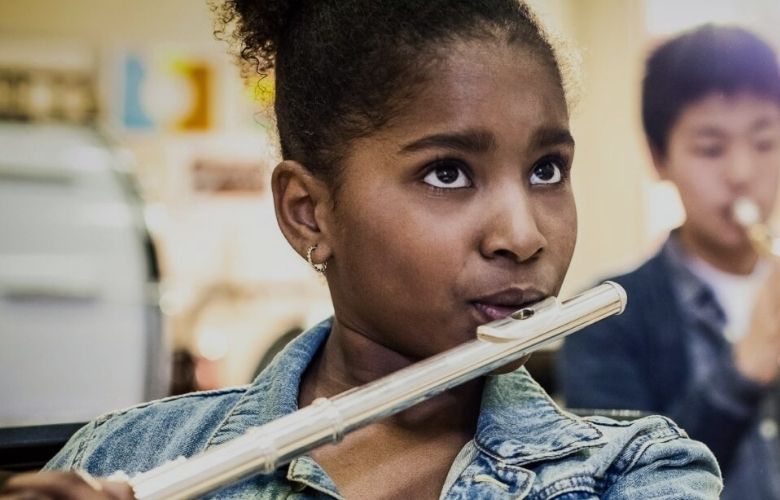
Black Lives in Music are a collective who are “standing on the frontline of diversity in jazz and classical music”. As the UK celebrates Black History Month in October, we wanted to highlight the work that is being done to support musicians. Black Lives in Music use data and insights to campaign for equity by uniting organisations and musicians to create a truly inclusive and diverse music industry.
Black Lives in Music are data driven and use the irrefutable facts to support the work they do. The statistics demonstrate the disparity in the classical and jazz communities, whereby Conservatoire teaching staff is very apparent:
Out of 1,345 members of UK Conservatoire teaching staff, only 28 – or around 2% were from a Black, Asian or other ethnically diverse background.
When it comes to mental health, the numbers reflect another worrying area of inequality: 73% of musicians suffer with mental health, with African Caribbean communities being three times more likely to be diagnosed and admitted to hospital for a severe long-term mental health condition than any other group.
Additionally, Black Lives in Music highlight the fact that much more data is needed. On their website they explain:
“There is no data or report that spotlights the Black Musicians’ experience such as economics, social interactions, education to talent pipeline and well being.
Organisations are rarely held to account concerning data insights and recommendations. To ensure these same organisations continue to receive funding there is a tick box, tokenistic mentality with the promotion of Black people from entry level to mid-management roles. There are almost no appointments in senior management roles.
Most surveys are not completed in a safe space or in anonymous fashion therefore people of colour rarely participate due to a lack of trust.”
Black Lives in Music aim to support change from within, specifically that is spread across four main areas, which are:
The benefits and impact of this work that Black Lives in Music do helps by:
Black Lives in Music offer support to Orchestras and professional ensembles, Universaties, Conservatoires, Opera, Theatres, Venues, Festivals, Trade Bodies and more.
To enable music organisations to reflect the nation’s diverse culture and to combat systemic racism in the music industry, they have created a 10-step digital charter which they expect all music organisations to agree to meet.

Additionally, it is so important to create more data to capture the facts, and so BLiM are urging participants to take part in their current survey to compile these statistics and factual data. The website explains:
“There is currently no data on Black musicians in the UK. The Black Lives in Music survey is the first of its kind to research the lived experience of Black musicians, professionals and music creators in the UK.
The survey will capture data in the areas of well-being, economics, racial discrimination, mental health, education and the talent pipeline and use the results to campaign for equality, access and opportunity.
Data drives change. The insights will be used to create pathways and opportunities for Black musicians and music creators in the music industry. It will also help Black Lives in Music to empower Black musicians to realise their aspirations by offering mentoring, support and opportunities.
Please complete our survey so we can create the data that’s needed to push for the changes we’re fighting to see.”
Open the survey here.
Black Lives in Music wishes to work with organisations, ensembles and companies throughout the UK music industry. We wish to open dialogues and build relationships in the true spirit of working together. We want to collaborate with all agents of the UK music industry to achieve equality for people of colour so they can express themselves in music of all genres and in all areas of this profession.
You can sign up to the charter now here, and join the community and become a member of Black Lives In Music. Donations are also welcome here.
Links:
Accessibility At The Smith Center Series: Part One
James “Fitz” FitzSimmons Interview: The Boys In The Band On Netflix


Michelle is a musician and composer from the UK. She has performed across the UK and Europe and is passionate about arts education and opportunities for women and girls.
Read Full Profile© 2021 TheatreArtLife. All rights reserved.

Thank you so much for reading, but you have now reached your free article limit for this month.
Our contributors are currently writing more articles for you to enjoy.
To keep reading, all you have to do is become a subscriber and then you can read unlimited articles anytime.
Your investment will help us continue to ignite connections across the globe in live entertainment and build this community for industry professionals.